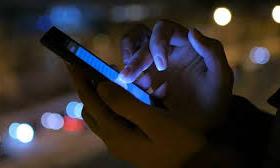
Late-night smartphone use linked to higher diabetes risk
text_fieldsA recent study from Monash University has identified a significant link between nighttime smartphone use and an increased risk of developing type 2 diabetes.
Following 85,000 individuals aged 40 to 69 over nine years, researchers discovered that exposure to artificial light at night, particularly between midnight and 6:00 am, disrupts sleep and raises diabetes risk, independent of sleep duration.
The study, which tracked participants' light exposure through wrist-worn devices, found that those in the top 10% for nighttime light exposure had a 67% higher risk of developing type 2 diabetes compared to those with the least exposure. This association persisted even after considering factors such as sleep duration and overall health habits.
Though the study does not establish a direct cause-and-effect relationship, it suggests that artificial light disrupts the body's natural sleep-wake cycle, potentially leading to metabolic issues. The disruption may be caused by blue light from smartphones and TVs, as well as yellow light from reading lamps.
"Avoiding night lights is a simple and cost-effective recommendation that may help reduce the global burden of type 2 diabetes," stated the study's lead author.
This research contributes to the growing evidence linking nighttime light exposure to various health problems. However, some limitations exist, such as the study not accounting for meal timings, which can affect blood sugar levels, and only considering socioeconomic factors regionally. Additionally, individual sensitivity to light varies greatly.
Future research is needed to solidify the connection between nighttime light and diabetes, but these findings suggest that limiting screen time before bed and maintaining a dark sleep environment could be beneficial for overall health.






















